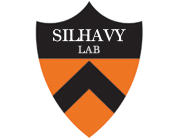Characterization of the role of the Escherichia coli periplasmic chaperone SurA using differential proteomics
Type
Little is known on how beta-barrel proteins are assembled in the outer membrane (OM) of Gram-negative bacteria. SurA has been proposed to be the primary chaperone escorting the bulk mass of OM proteins across the periplasm. However, the impact of SurA deletion on the global OM proteome has not been determined, limiting therefore our understanding of the function of SurA. By using a differential proteomics approach based on 2-D LC-MS(n), we compared the relative abundance of 64 OM proteins, including 23 beta-barrel proteins, in wild-type and surA strains. Unexpectedly, we found that the loss of SurA affects the abundance of eight beta-barrel proteins. Of all the decreased proteins, FhuA and LptD are the only two for which the decreased protein abundance cannot be attributed, at least in part, to decreased mRNA levels in the surA strain. In the case of LptD, an essential protein involved in OM biogenesis, our data support a role for SurA in the assembly of this protein and suggest that LptD is a true SurA substrate. Based on our results, we propose a revised model in which only a subset of OM proteins depends on SurA for proper folding and insertion in the OM.

